S$800 million earmarked for improvements to active ageing centres as part of new Age Well SG initiative
Seniors can also look forward to having a single provider across different services as well as alternative care models for assisted living under the Age Well SG programme.
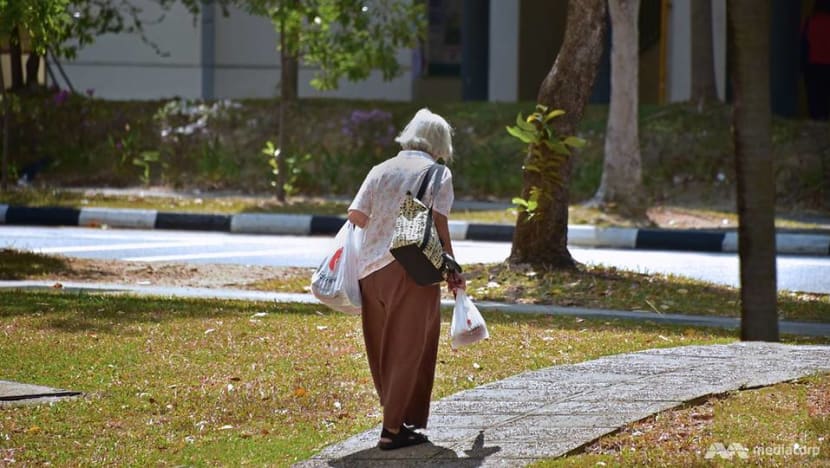
An elderly woman in Singapore. (File photo: CNA/Gaya Chandramohan)

This audio is generated by an AI tool.
SINGAPORE: Around S$800 million (US$594 million) will go towards improving active ageing centres as part of a national initiative to support seniors ageing within their communities, the Ministry of Health (MOH), Ministry of National Development (MND) and Ministry of Transport (MOT) said on Thursday (Nov 16).
The measure is one of several under Age Well SG, a national programme that focuses on preventive care by keeping seniors active and involved in the community.
Announced by Prime Minister Lee Hsien Loong during this year's National Day Rally, Age Well SG is led by the three ministries.
The enhancements under the programme also encompass housing and transport, and come as Singapore heads towards "super-aged" status, which is when the proportion of the population aged 65 and above hits the 21 per cent mark. Singapore is set to attain the status in 2026.
This figure is expected to rise. By 2030, more than 900,000 Singaporeans will be aged 65 or older.
"The key priority for us in Age Well SG is to recognise that, for many seniors, the biggest enemy is social isolation and loneliness. That's when your health really deteriorates," said Minister for Health Ong Ye Kung in a joint press conference with Minister for National Development Desmond Lee and Acting Minister for Transport Chee Hong Tat at the NTUC Health Active Ageing Centre in Lengkok Bahru on Thursday.
"So we want them to be socially included and socially connected with friends, with love, with friendship, with care."
Age Well SG will tackle the consequences of an ageing society with measures implemented progressively over the long term.
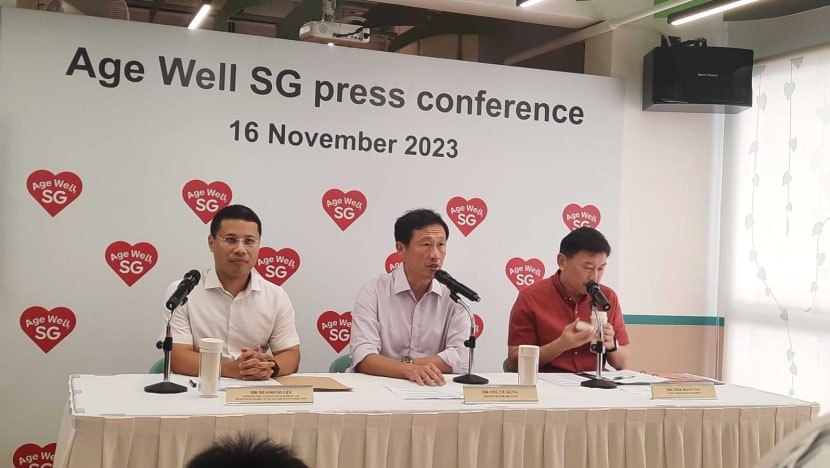
GETTING MORE SENIORS INVOLVED
Around S$800 million will go towards enhancing active ageing centres from the 2024 financial year to FY2028.
Mr Ong announced that each active ageing centre will have its budget increased by at least 50 per cent, meaning that each centre's current annual budget of around S$400,000 will rise to S$600,000. A further tier will be available to these centres if they achieve certain outcomes.
"So significantly more resources for each and every active ageing centre, but then with greater resourcing we also have higher expectations for active ageing centres," said Mr Ong, adding that this involved expanding outreach to seniors and improving programmes.
Under Age Well SG, the operating model of the centres will be improved with a view to making them more convenient and accessible for seniors, and to reach out to the majority of them.
Silver Generation Ambassadors, meanwhile, will strengthen their community outreach and connect with seniors in common spaces, focusing on those who are at risk of social isolation.
The quality and range of programmes for seniors across the domains of social, physical health, cognitive, learning and volunteerism will also be enhanced. The centres will have the flexibility to customise programmes to cater to the needs of the seniors in their neighbourhoods.
One "core function" of the active ageing centres will be to drive senior volunteerism, said Mr Ong. Today, about 1,900 seniors who volunteer are Silver Generation Ambassadors.
"We must be able to have more such programmes where we can take in big numbers of senior volunteers," he said.
"And all these volunteers, they share that volunteering gives them a sense of purpose, a way to contribute to a community regardless of their age, and it helps them remain healthy."
A Silver Generation Volunteer programme will be rolled out to train and deploy senior volunteers to the active ageing centres.
The Agency for Integrated Care (AIC) will provide the training before matching senior volunteers to opportunities at the active ageing centres. There, senior volunteers can organise and run programmes for other seniors.
The authorities plan to double the number of senior volunteers to about 4,000 by 2025.
Apart from these improvements, the centres will also work closely with community partners and healthcare clusters to support seniors.
The number of centres islandwide will be increased from 154 currently to 220 by 2025, providing eight in 10 seniors with access to active ageing centre activities in the vicinity of their homes.
ASSISTED LIVING FACILITIES
Seniors who need more assistance in everyday living can also look forward to more alternative care models being explored by the government.
In September this year, MOH and AIC launched applications for a sandbox to look into the viability of a new caregiving model which involves having foreign live-in caregivers for seniors in shared apartments.
MOH and AIC are working with the Ministry of Manpower (MOM) to help the private sector with the endeavour by providing foreign manpower concessions to help with manpower challenges.
So far, five companies - Active Global Respite Care, Econ Health & Wellness, Red Crowns Senior Living, St Bernadette Assisted Living and TS Care Services - have been identified to be onboarded. These five will aim to serve about 800 seniors. The authorities are looking to reach a decision on the pilot within the next two years.
Mr Ong stressed that these alternative models are not expected to replace facilities such as nursing homes.
"I think the care needs of seniors are diverse and need to be met with different kinds of providers," he said, citing seniors who need different levels of care which may determine which model is best for them. Those who can live fairly independently, for example, may be suited for Community Care Apartments.
"So I think what we want to build is a continuum of care models," he added.
Assisted living facilities, where seniors live in home-like forms of accommodation that also provide caregiving services, are already available here.
The St Bernadette Lifestyle Village in Bukit Timah, for example, houses seniors who live in their own private ensuite rooms. These seniors have access to round-the-clock care.
Red Crowns, a local care provider that began operations in April 2021, also operates such facilities. However, the company came under the spotlight in June this year for possible offences involving the employment of foreign domestic workers.
Asked about Red Crown's involvement in the latest sandbox, Mr Ong noted that Red Crown had received positive feedback from clients on its services, but that its suspected infraction was a "serious matter".
"MOM will need to follow up with regulatory actions, enforcement actions, disciplinary actions ... but we take a step back and look at what Red Crown has done. It has also pushed the envelope and developed a new shared care service model which can be useful," said Mr Ong.
The Health Minister said that after speaking to MOM, MOH decided to start the sandbox and look at things "purely objectively" in terms of the level of service and how much it would benefit seniors.
After looking at proposals, MOH shortlisted five providers, which included Red Crown.
Mr Ong added that from an "objective, professional point of view", MOH ought to consider Red Crown's proposal seriously "based on their capabilities and the service level that they have managed to deliver in their previous model". This is despite the fact that "it was a model that breached certain MOM rules".
The company will continue to be part of the initiative pending the outcome of investigations.
The authorities will also ramp up the supply of Community Care Apartments - assisted-living public housing for seniors that allows them to reside in neighbourhoods they are familiar with.
The flats come pre-installed with senior-friendly fittings and come with care services that can be tailored to seniors' needs.
The first two projects, Harmony Village @ Bukit Batok and Queensway Canopy in Queenstown were launched in 2021 and 2022 respectively. Both have take-up rates of close to 90 per cent, according to MND.
The first batch of residents is expected to move into Harmony Village @ Bukit Batok next year.
If the model of care provision proves scalable and effective, up to 30 Community Care Apartment projects will be launched across Singapore by 2030.
The third project, in Bedok, will be launched in the upcoming December Build-to-Order exercise.
Asked how the government would balance high demand for housing against building more Community Care Apartments for seniors, Mr Lee noted that the demand for housing skyrocketed during the COVID-19 pandemic and still remains high.
He added that recent HDB launch application rates have shown some moderation, in part because delayed flats are being completed.
The government has also ramped up supply "quite aggressively", has provided support to the resale market through measures such as grants that give people more access to resale flats, and has also tightened the rules to prioritise those looking to settle down, he said.
"At the same time, there is also high demand from seniors looking to right-size. So we've said earlier that for seniors as well as singles, we are ramping up the supply ... And along with that, a ramp-up of the Community Care Apartments, 30 more projects between now and 2030. So those projects will be infused into some of our existing launches," said Mr Lee.
He added that the authorities will watch the initial launches to ensure that the model works well.
ONE PROVIDER ACROSS SERVICES, CAREGIVER TRAINING
From the second half of next year, seniors will be able to approach a single point of contact within the region they live in to help them with their different needs.
This will reduce the need for multiple assessments and unnecessary referrals by different care providers in the current fragmented landscape of eldercare service providers.
"We will improve coordination within this aged care landscape. Within each local area, we will appoint a single provider who will coordinate all the services needed ... so that our seniors will have a more seamless journey without having to move from pillar to post," said Mr Ong.
The provider, which has yet to be determined, will conduct a single assessment and develop a holistic care plan for each senior.
The authorities said there will be a provider for each of the 86 zones across Singapore, each of which should cater to about 8,000 to 16,000 seniors.
To enable families to have a trained caregiver, the government will also be increasing the Caregivers' Training Grant next year, from S$200 currently to up to S$400 from April next year.
From November this year, caregivers will also be able to tap on SkillsFuture credit to pay for eligible caregiver courses.
The number of subsidised training places for caregivers will be scaled up to 4,400 each year across 200 courses, with AIC and SkillsFuture Singapore adding more places where needed.
SENIOR-FRIENDLY LIVING ENVIRONMENT
More senior-centric upgrading works will be rolled out for flats and selected older private residential estates.
Within flats, a wider range of features, such as rocker switches, home fire alarm devices, handrails at multi-step flat entrances, foldable shower seats and widened toilet entrances for wheelchair users, will be installed as part of the upgraded Enhancement for Active Seniors (EASE) programme, known as EASE 2.0.
EASE was first offered in 2012 under the Home Improvement Programme.
To provide more support to lower-income and vulnerable seniors, the authorities will also be expanding the provision of the wireless Alert Alarm System to seniors aged 60 and above who live in public rental housing.
The system has been provided to about 10,000 seniors across 52 rental blocks since 2019, according to MND. The expansion will benefit about 26,800 more seniors in around 170 rental blocks.
The system enables seniors to call for help during emergencies by pressing alert buttons in their homes.
Seniors can then record short voice messages which will be transmitted to CareLine, a round-the-clock hotline, or nearby active ageing centres.
MND said that 800 seniors have benefited from emergency medical assistance through the system in the past three-and-a-half years.
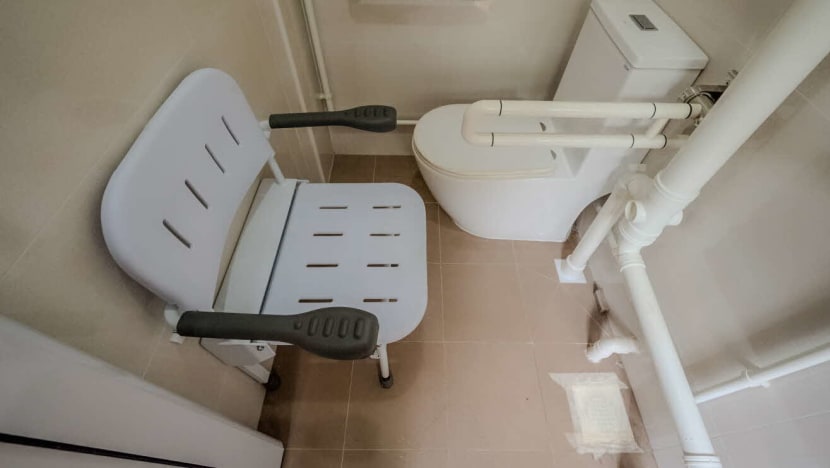
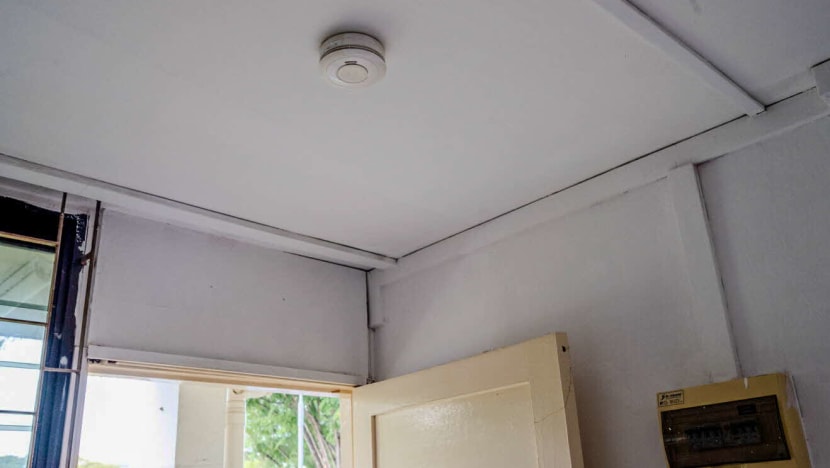
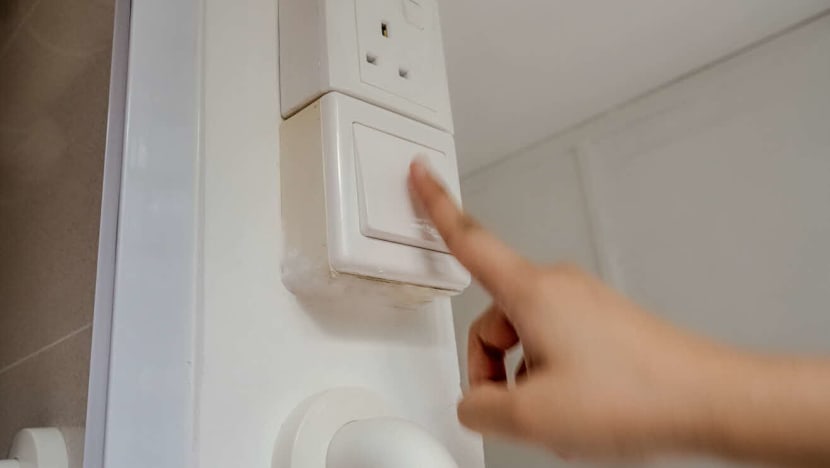
Outside homes, the Housing and Development Board will progressively carry out upgrading works in more than 20 older precincts with a higher density of seniors in Ang Mo Kio, Bukit Merah, Queenstown and Toa Payoh over the next five years.
Upgrading works will include the installation of barrier-free access ramps and rest points along routes frequented by seniors.
Colourful signs and symbols will be introduced to help seniors with dementia navigate their neighbourhoods independently.
Amenities that support their health, such as fitness trails and therapeutic gardens will also be installed to encourage seniors to stay active.
Enhancements will be tailored for each area to cater to residents' needs, and the authorities will engage seniors to seek their views.
Selected private estates will also see senior-centric renovations under the Estate Upgrading Programme, including those that previously benefited from the programme some time ago.
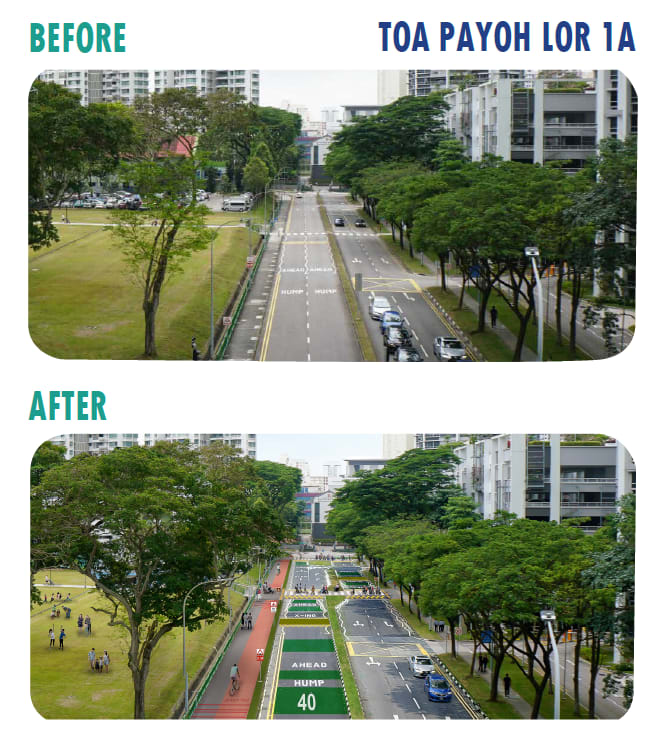
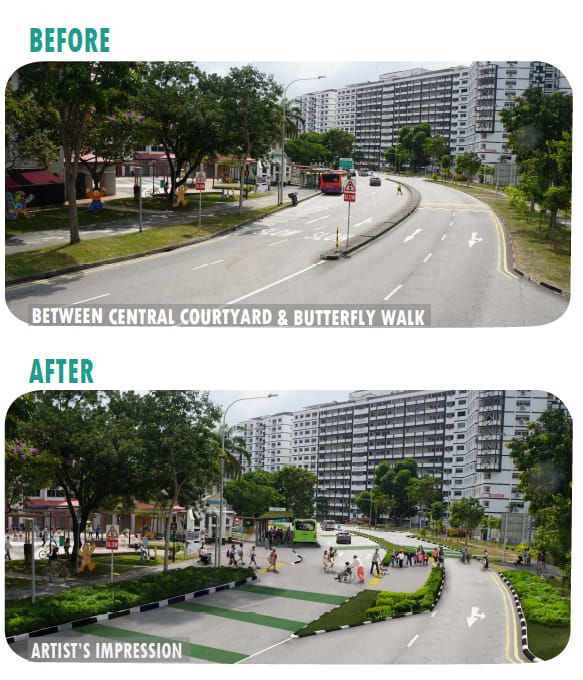
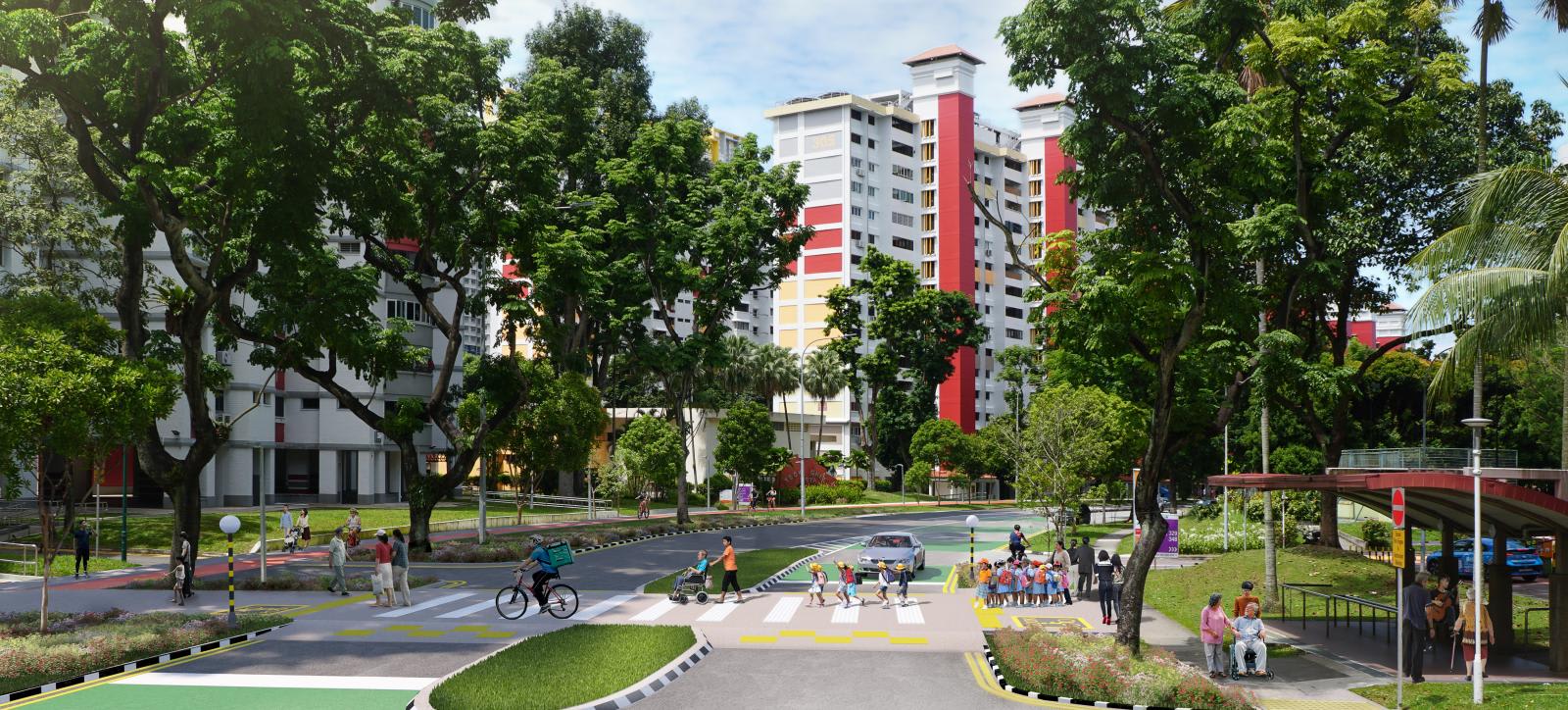
FRIENDLY STREETS
To enhance the safety and convenience of residents, the Land Transport Authority will be expanding its Friendly Streets initiative to all towns by 2030. The effort builds on existing road safety initiatives, such as Silver and School zones.
Launched during MOT's Committee of Supply debate this year, the Friendly Streets initiative includes barrier-free crossings, more frequent and longer green man activations and measures to slow vehicles down, such as road humps and surface markings.
Noting that there will be a trade-off as vehicles will need to go slower, Mr Chee said: "This is the part where we will need the understanding and support of all our residents to put safety first.
"And especially as we become an ageing society, there are more seniors in our community. It is important for us to encourage them to continue to come out, to go about their daily activities, to be with their friends.
"I think giving them the confidence that they can have safe roads, Friendly Streets, as well as safe, convenient and accessible facilities for them to move about the town will be very important."
Currently, there are five pilot sites in Ang Mo Kio, Bukit Batok West, Tampines, Toa Payoh and West Coast. All are located near key amenities such as markets, hawker centres and community clubs which see high pedestrian traffic.
Works are expected to commence on the pilot locations progressively from the end of this year.
Mr Chee said that the authorities intend to continue with the School and Silver zones.
"But as the schemes evolve ... eventually we see Friendly Streets as a sort of umbrella initiative to be able to encompass the benefits of what we hope to achieve with School Zones and with Silver Zones."


















